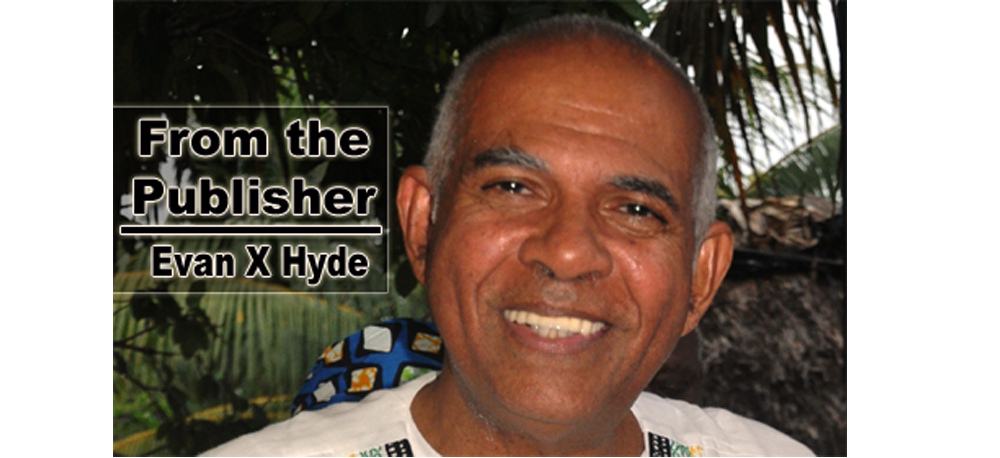I listened carefully to Friday morning’s Nuri Muhammad interview with Hon. Michael Finnegan on XTV/KREM Radio. Insofar as the founding of the United Democratic Party in 1973 was concerned, Mr. Finnegan was saying the same thing that Rufus X has always said to me, which is, that a group of people decided to seek to unite the various splinter groups which had been opposed to the ruling People’s United Party (PUP), which had won five consecutive national elections, from 1954 to 1969.
Rufus X had been a UBAD officer in early 1973 when the Unity Congress, precursor to the UDP, was being organized. The Unity Congress was responsible for the division within UBAD which took place at precisely this time. Rufus X was one of five UBAD officers who basically voted to join the Unity Congress, while I, as president, was one of five other officers who voted to remain independent.
Rufus X always considered himself one of the founders of the UDP in September of 1973, but he split with the party in 1987 when the then ruling UDP, led by Dr. Manuel Esquivel, refused to allow him to challenge Hon. Sam Rhaburn, the incumbent, in Belize Rural North.
My personal opinion on the founding of the UDP has always been different from that of Finnegan and Rufus. I believe, yes, that the UDP founders wanted to defeat the PUP, but I also believe that a primary objective of the UDP founders was to replace Philip Goldson with Dean Lindo as the leader of the anti-PUP forces.
Goldson was a national hero in Belize because of going to jail for his beliefs in 1951 and for risking jail by revealing the Thirteen Proposals to the Belizean people in 1966. But, by the time of the Unity Congress, there were powerful anti-PUP forces which believed that Mr. Goldson could never lead the Opposition to victory over the PUP.
It is quite possible they were right. Mr. Goldson was a husband, a father, and a journalist. Mr. Lindo, on the other hand, was a cold-blooded politician, brilliant and Machiavellian.
What were the elements which the Unity Congress sought to unite? Firstly, there was the National Independence Party (NIP), led by Mr. Goldson, Leader of the Opposition in the House. Then there was Dean Lindo’s People’s Development Movement (PDM), which had broken off from the NIP when Lindo’s challenge to Goldson’s NIP leadership failed in mid-1969. (The NIP and the PDM had formed a hasty coalition when the PUP called general elections in November of 1969.) There was a Liberal Party, somewhat of a ghost organization without a face, which consisted of a few individuals who were being supported by wealthy merchants. And then, there was UBAD.
1971 was the year when Samuel Haynes, a prominent Goldson supporter inside the Freedom Committee in New York, died in New Jersey. In December of that year, there were City Council elections in Belize City. Mr. Goldson asked me, as UBAD leader, to join the NIP in a coalition to contest the election, the NIP offering six candidates and UBAD three. The NIP candidates were weak, and the PDM cynically boycotted the election. But Mr. Goldson’s name still had some magic. The NIP/UBAD coalition, with virtually no financing, garnered 39% of the vote.
I took the election defeat hard, and decided to go to New York to seek help to fight the PUP. I was young and innocent, and maybe stupid. In retrospect, I travelled to New York by road in January of 1972 to consult with people who were already part of a coalition to replace Mr. Goldson.
UBAD was involved in a series of court cases in early and mid-1972. In all these cases, we were defended pro bono by Dean Lindo. This, of course, earned Mr. Lindo credibility inside UBAD.
Meanwhile, while I had been in New York, Mr. Goldson had decided to go to London to study law. His wife, Hadie, who had qualified as an attorney in London in 1965, migrated to New York with their six children. She did not return to Belize and Mr. Goldson until the UDP came to power in 1984.
The UDP, unlike the PUP, was not founded in an organic manner. That is the reason there is so much wrangling inside the party, prolonged wrangling to an extent unprecedented in the history of Belize’s two major political parties.
The PUP, on the other hand, was built on the solid base of the General Workers Union (GWU), a powerful trade union led by Clifford Betson and Henry Middleton. Jesuit-trained activists, such as Johnny Smith, George Price, and Nick Pollard, in tandem with leaders such as Leigh Richardson and Philip Goldson, essentially took over the GWU. In the national elections of 1954 and 1957, the PUP ran in coalition with the GWU. How the PUP replaced the GWU with the Christian Workers Union (CWU) is a story which I don’t believe has ever been told. But, by the time of the 1961 general election, under a new Ministerial constitution, the GWU was missing in action.
Between 1984 and 2015, the UDP won five general elections. The result of their success was the coining of the term “PUDP” by skeptics. It did not appear that there was that much difference between the two major political parties in Belize.
Today, however, we may be looking at a difference. Historically, the PUP had/have a base. The UDP had splinters in their composition, the most obvious being big merchants in the same grouping as roots citizens.
Still, of course, Belize’s parliamentary democracy desperately needs for the Opposition UDP to get its act together. Mr. Finnegan did offer suggestions as to how this could be done. We shall wait and see.

